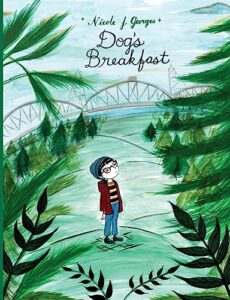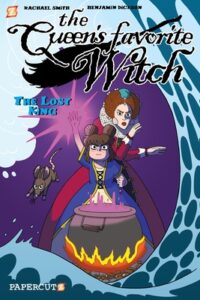The jacket copy from the Süddeutsche Zeitung edition of Jaan Kross’ historical novel The Tsar’s Madman, first published in 1978, is tough to beat for a concise summary. “In his diary, Jakob Mättik tells the dramatic story of his brother-in-law, the Baltic German nobleman Timotheus von Bock, who won not only renown in 1812 in the war against Napoleon but also the trust and friendship of Tsar Alexander I. Alexander wins a promise from Timotheus that he will always tell the Tsar the truth. Bock keeps his promise and presents the Tsar with a memorandum that mercilessly lays out the problems of the Russian Empire and does not hold back from criticizing the Tsar personally. … But his boldness is harshly punished: he is arrested and locked away. His pregnant wife Eeva, Jakob’s sister, is left behind. Nine years later, Bock is declared insane and released, but the new Tsar Nicholas I only allows Bock the life of house arrest on his estate with an overseer. Not only the overseer but also Jakob wonder whether Bock is just a dreamer, a rebel, or maybe an actual madman…”

Jaan Kross (l) and me in Tallinn holding a copy of Der Verrückte des Zaren
Jakob’s diary moves back and forth in time, describing not only the novel’s present when Timotheus has returned, but also the time of his arrest and how everyone — most particularly Eeva — coped with the absence of the lord of the manor. He also relates times further past, when Timotheus first took an interest in Eeva (and Jakob by extension) and how they came to be married. As a German-speaking noble, Timotheus is part of a class that had dominated Estonia since the 1200s and 1300s. The Russian Empire was a comparative latecomer, having wrested the Baltic shores from Swedish control in the early 1700s. By the time of The Tsar’s Madman, Russian monarchs had reigned over the region for a bit more than a century. The nobles were integrated in Russia’s high society, and travel to the Imperial court in St. Petersburg was a regular part of their lives. They served in Russia’s armed forces and followed the capital’s fashions, but in truth Russian suzerainty had done little to change relations on the manors that had persisted for centuries. The nobles’ society that Kross shows is Baltic and German; the few Russians who appear are either passing through or are on a particular mission with orders from the court.
The Estonians have, of course, been there all along. It is their labor that props up the entire system of nobility and empire, but neither the local Germans nor the sovereign Russians think that they count for much. Jakob himself does not name the Estonian language, he just calls it “the peasants’ tongue.” Kross knows better, of course. He wrote the novel in Estonian, and his work led to a revival of historical fiction in Estonian in the late Soviet period. Kross was born in the interwar Republic of Estonia, and he finished his studies of law during World War II, when Estonia was alternately occupied by the Soviet Union and Nazi Germany. After the war, the Soviets deported him to Siberia, and he was held in the Gulag until 1954. When he returned, he found his law qualification was useless, as Soviet law had superseded Estonian, and Kross turned to writing to make a living. Historical subjects kept him clear of the worst of late Soviet censorship, and he became Estonia’s most-translated author. Kross outlived the Soviet Union, dying in 2007 in a Tallinn that was the capital of independent Estonia as it was when he was born.
Continue reading
 PF introduces Liv Spyers, the college dropout and aspiring photographer who’s set up her small studio (and apartment) in the basement of her grandparents’ key shop, where she also helps out from time to time. Sending her resume out to various photography agencies has gotten her exactly zero callbacks, but no one ever succeeded in New York City by giving up at the first setback. When Regina Montague — renowned celebrity photographer and the owner of one of the highly successful studios that passed on Liv’s resume — comes into the key shop one day and mentions needing a photographer for an imminent gig, Liv immediately recommends herself. Regina is desperate enough to give her a shot, telling her when and where to show up to photograph a society debutante’s ball.
PF introduces Liv Spyers, the college dropout and aspiring photographer who’s set up her small studio (and apartment) in the basement of her grandparents’ key shop, where she also helps out from time to time. Sending her resume out to various photography agencies has gotten her exactly zero callbacks, but no one ever succeeded in New York City by giving up at the first setback. When Regina Montague — renowned celebrity photographer and the owner of one of the highly successful studios that passed on Liv’s resume — comes into the key shop one day and mentions needing a photographer for an imminent gig, Liv immediately recommends herself. Regina is desperate enough to give her a shot, telling her when and where to show up to photograph a society debutante’s ball.








